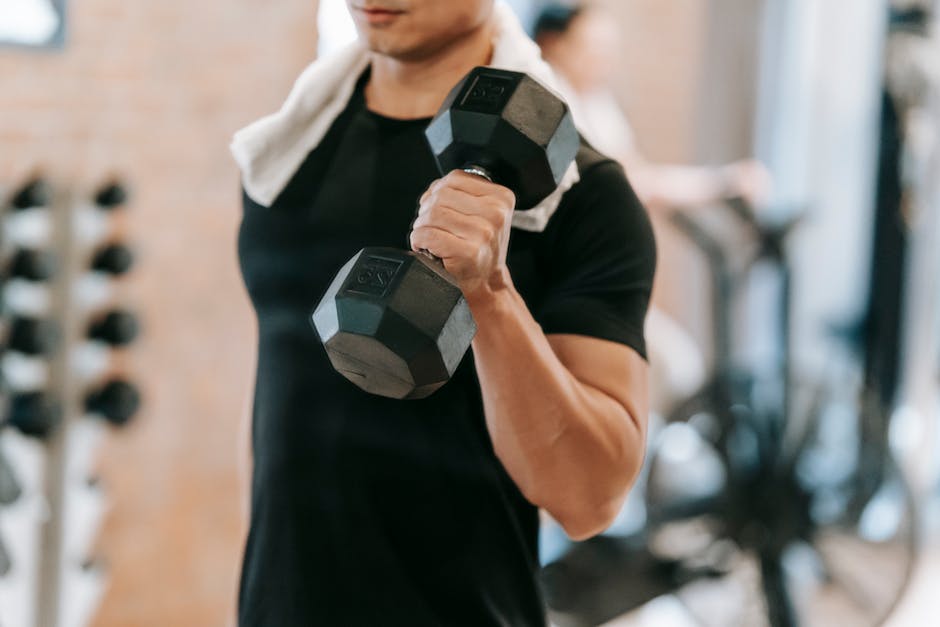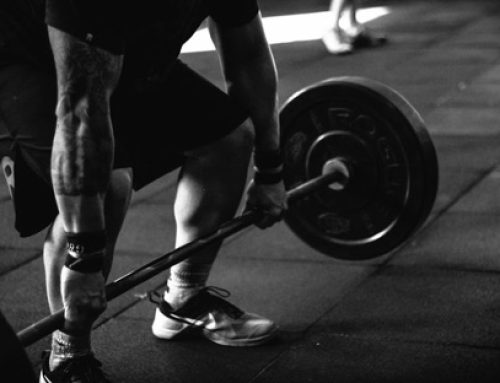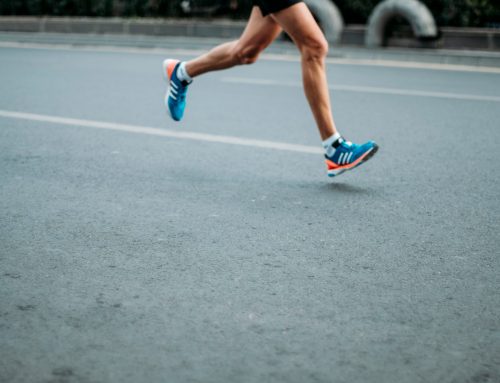Are you tired of going to the gym day in and day out, only to see little to no progress in your gains? Fear not, my fellow gym rats, for there may be a solution that’s been under our noses this whole time: fasting. Yes, you read that right. Fasting and weight lifting may seem like an odd couple, but trust me, they work together like mac and cheese. So put down that protein shake and let’s explore how you can optimize your workout by incorporating fasting.
Contents
- 1 Fasting and Weight Lifting: Practical Benefits for Athletes
- 2 Introduction to the Benefits of Fasting Prior to Lifting Weights
- 3 How to Fast Before Your Workouts to Maximize Performance
- 4 The Science Behind Fasting and Muscle Growth
- 5 Pre-Workout Nutrition: Tips and Techniques for an Effective Training Session
- 6 Parting Thoughts:
Fasting and Weight Lifting: Practical Benefits for Athletes
When you think of fasting, you probably picture a bunch of ascetics meditating under a tree in India. But did you know that fasting can actually benefit weight lifters? It sounds crazy, but hear me out. Here are some practical benefits fasting can offer athletes:
1. Better Insulin Sensitivity: By fasting, you’re giving your body a chance to reset insulin sensitivity levels. Insulin is a hormone that helps regulate blood sugar levels. When your insulin sensitivity is low, your body can’t utilize glucose as efficiently, which can lead to a host of problems including type 2 diabetes. Better insulin sensitivity means you can fuel your workouts more effectively, leading to greater gains in muscle mass and strength.
2. Increased Growth Hormone Levels: Fasting can actually stimulate the release of growth hormone in your body. Growth hormone is crucial for muscle growth and repair. So if you’re looking to build more muscle, fasting might be just what you need.
3. Improved Mental Focus: Fasting has been shown to improve mental clarity and focus. So if you’re feeling a little sluggish and can’t seem to get in the zone at the gym, consider giving fasting a try. You might just find that it helps you power through your workout with renewed energy and focus.
You don’t have to fast for days on end to reap the benefits either. Intermittent fasting – where you restrict food intake for a set number of hours each day – can be just as effective. Of course, you should always consult with a healthcare professional before making any major changes to your diet or exercise routine. But with some clever planning, fasting just might be the key to unlocking new personal bests at the gym. Now if you’ll excuse me, I’m off to meditate under a tree.
Introduction to the Benefits of Fasting Prior to Lifting Weights
So, you want to know about the benefits of fasting before lifting weights? Well, sit down, buckle up, and hold on tight because we’re about to take a ride in the world of intermittent fasting and weight lifting.
First things first, when you fast before lifting weights, your body enters an energy-producing mode like never before. Your body starts converting stored fats and carbs into energy, making for a more efficient workout and increased stamina. Not to mention, you’re burning fat as you lift that barbell.
But wait, there’s more. When you fast for several hours before lifting, your body’s natural human growth hormone (HGH) levels spike up to 5 times their normal level. This hormone is essential for building muscle, burning fat, and improving performance.
- Increased energy levels
- Burning fat while lifting weights
- Natural increase in HGH levels for better muscle building
So, there you have it folks, the wonders of fasting before lifting weights. Give it a try and see the difference for yourself. But, don’t forget to stay hydrated and fuel up with proper nutrients after your workout. Happy fasting and happy lifting!
How to Fast Before Your Workouts to Maximize Performance
Are you tired of feeling sluggish and slow during your workouts? Maybe it’s time to try fasting before hitting the gym. Don’t worry, I’m not suggesting a full-on hunger strike. Just a few tweaks to your eating habits can lead to better performance and a stronger body.
- Drink up: Hydration is key, especially if you’re not consuming food. Sip on water, herbal tea or black coffee throughout your fast to keep your body hydrated and energized.
- Snack smart: If you must eat before your workout, make it a light snack that won’t weigh you down. Try a handful of almonds or an apple with almond butter.
- Replenish post-workout: After your sweat sesh, it’s important to refuel your body with protein and carbs. A smoothie with protein powder, banana and almond milk is the perfect post-workout snack.
Remember, fasting isn’t for everyone. Make sure to listen to your body and consult with a nutritionist or doctor before making any major changes to your diet. Happy fasting and even happier workouts!
The Science Behind Fasting and Muscle Growth
If you think fasting is just for spiritual purposes or weight loss, think again! The science behind fasting has recently proven its effectiveness in muscle growth. Yes, you read that right – Fasting can help you get ripped. So, get ready to say goodbye to your old habits and embrace the new, science-backed routine for muscle growth.
Before we go any further, let’s understand the science behind fasting and muscle growth. Fasting promotes autophagy – a natural cellular process that helps in breaking down and recycling damaged proteins within the muscle cells. This results in increased muscle protein synthesis which helps in muscle growth. Additionally, fasting promotes insulin sensitivity, which is essential for maintaining lean muscle mass.
Now, you might be thinking, “But wait! Won’t I lose muscles if I fast?” Fear not, my friend. Studies have shown that short-term fasting (up to 48 hours) does not affect muscle mass. However, it’s essential to note that fasting for an extended period can be detrimental to muscle growth. So, remember to consult a professional before starting any new fasting routine.
To sum it up, fasting is not only for weight loss or spiritual purposes anymore; it’s a scientifically-backed method for muscle growth. So, if you’re tired of your traditional workout routine, give fasting a try. Remember to give your body the proper nutrition it needs, and you’ll be on your way to ripped muscles in no time!
Pre-Workout Nutrition: Tips and Techniques for an Effective Training Session
First things first, a good pre-workout meal is the fuel your body needs to conquer the toughest of workout sessions. Skipping it is a big no-no, unless you’re a glutton for punishment. So, what should your pre-workout meal contain? Well, carbohydrates and protein are key players here. Carbs provide energy (duh), while protein helps repair and strengthen those muscles you’re about to demolish.
Now, too much food can be a hindrance, especially if it prompts a sudden urge to hit the bathroom mid-workout. So, keep it light and give your body some time to digest. A good rule of thumb is to eat your meal about 30 minutes before working out, but if all you can manage in that time is a banana, go for it. It’s better than nothing.
Oh, and don’t forget about hydration. Drinking enough water before working out can make all the difference. Not just in terms of performance, but also in terms of recovery. So, fill up that water bottle and carry it around like it’s your security blanket. It’s the only thing that’ll keep you from becoming a shrivelled-up raisin by the end of your workout.
Parting Thoughts:
Well, there you have it folks! Who knew that fasting and weightlifting could be such a winning combo? And now that you’ve armed yourself with this newfound knowledge, you can strut confidently into the gym, ready to take on any task that comes your way. So go ahead, lift those weights with pride, and don’t forget to treat yourself to a hearty meal afterward! Just remember, everything in moderation, even your muscles. Happy lifting!








Leave A Comment